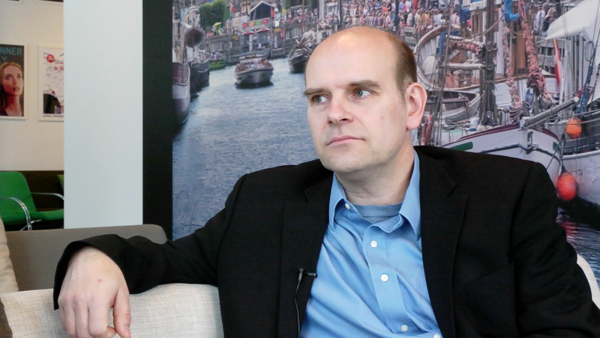Go offline with the Player FM app!
Carsten Schürmann: Electronic Elections
Archived series ("Inactive feed" status)
When?
This feed was archived on August 18, 2024 23:13 (
Why? Inactive feed status. Our servers were unable to retrieve a valid podcast feed for a sustained period.
What now? You might be able to find a more up-to-date version using the search function. This series will no longer be checked for updates. If you believe this to be in error, please check if the publisher's feed link below is valid and contact support to request the feed be restored or if you have any other concerns about this.
Manage episode 179564462 series 1404336
Carsten Schürmann is the leader of the Demtech research center, which studies the interplay between technology and democracy. Carsten is a world leading expert in computer security and critical digital infrastructure, with a background in the theory of programming languages and logics.
We talk to him about digital democracy, in particular electronic elections, including online voting. The goal of democratic elections is the peaceful transition of government, which means that both winners and loser must trust the outcome of the result. How is this trust generated if the details of voting are no longer transparent?
Recorded on 21 April 2017.
17 episodes
Archived series ("Inactive feed" status)
When?
This feed was archived on August 18, 2024 23:13 (
Why? Inactive feed status. Our servers were unable to retrieve a valid podcast feed for a sustained period.
What now? You might be able to find a more up-to-date version using the search function. This series will no longer be checked for updates. If you believe this to be in error, please check if the publisher's feed link below is valid and contact support to request the feed be restored or if you have any other concerns about this.
Manage episode 179564462 series 1404336
Carsten Schürmann is the leader of the Demtech research center, which studies the interplay between technology and democracy. Carsten is a world leading expert in computer security and critical digital infrastructure, with a background in the theory of programming languages and logics.
We talk to him about digital democracy, in particular electronic elections, including online voting. The goal of democratic elections is the peaceful transition of government, which means that both winners and loser must trust the outcome of the result. How is this trust generated if the details of voting are no longer transparent?
Recorded on 21 April 2017.
17 episodes
All episodes
×Welcome to Player FM!
Player FM is scanning the web for high-quality podcasts for you to enjoy right now. It's the best podcast app and works on Android, iPhone, and the web. Signup to sync subscriptions across devices.





